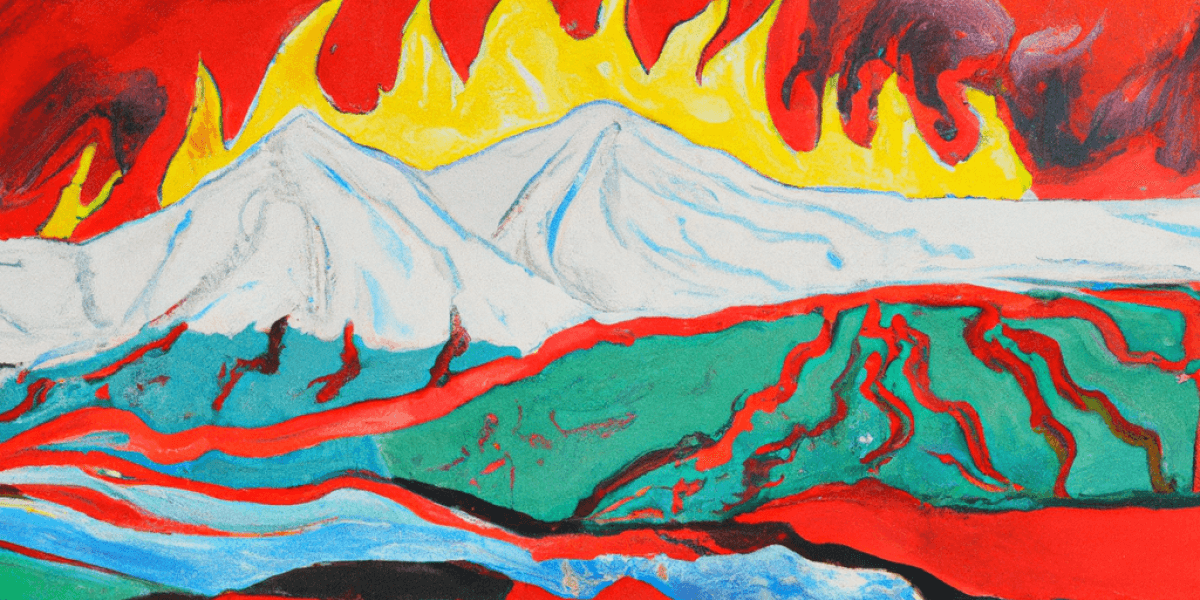CN-coESM - Permafrost, wildfire, climate change processes, interactions, and feedbacks: co-development of Earth System Models between China and Norway
Arctic-boreal regions are warming at a much faster rate than the global mean. Arctic-boreal ecosystems combined are the largest reservoirs of terrestrial carbon and have long snow covered seasons. As a result, processes involved in these ecosystems have a high significance for global climate.
Permafrost, wildfires and climate change processes. Illustration: Dall-E.
Project details
Projected climate warming is expected to accelerate permafrost thaw and increase wildfire size, severity, and frequencies in Arctic-boreal ecosystems. Recent studies strongly argue that failing to represent some of the key Arctic-boreal ecosystem processes will lead to large uncertainty in future climate projections. Yet, key knowledge gaps remain, mainly because the potential for additional feedbacks and interactions across abrupt permafrost thawing, wildfires, and the climate systems are not commonly assessed. Furthermore, these processes are not typically included in state-of-the-art Earth System Models (ESMs), making it difficult to systematically quantify the interactions and feedbacks within the climate system. Therefore, there is an urgent need to invest in ESM development to better represent Arctic-boreal ecosystem processes and the coupling of these processes to the atmosphere. We aim to advance our understandings of the interactions and the feedback cycles between key Arctic-Boreal ecosystem processes and the climate system.
We will investigate the impacts of 1) emissions driven climate feedbacks and 2) physically driven feedbacks from albedo associated with abrupt permafrost thaw and wildfire. We will achieve this goal by collaboratively improving ESMs that are developed and maintained in China and Norway. These regional scale model process developments are often under prioritized from the main model development efforts. When supported, however, these improvements can make great synergies with other main model developments, which will be extremely useful in closing the knowledge gap in the climate system.
